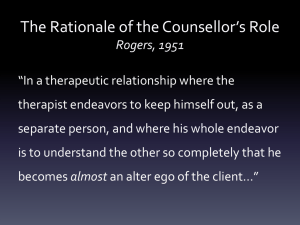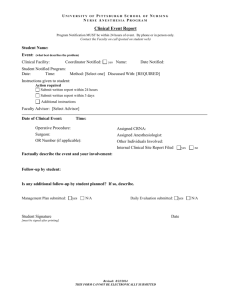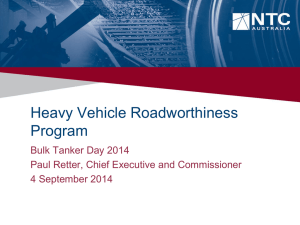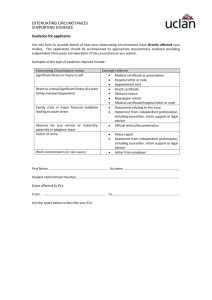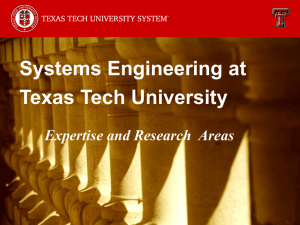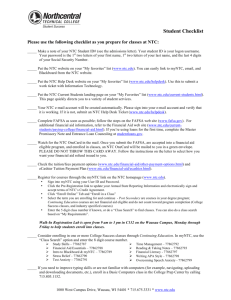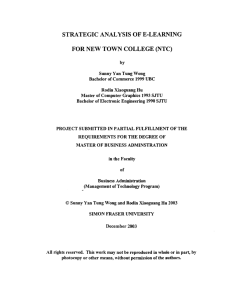Frequently Asked Questions - The Nuu-Chah
advertisement
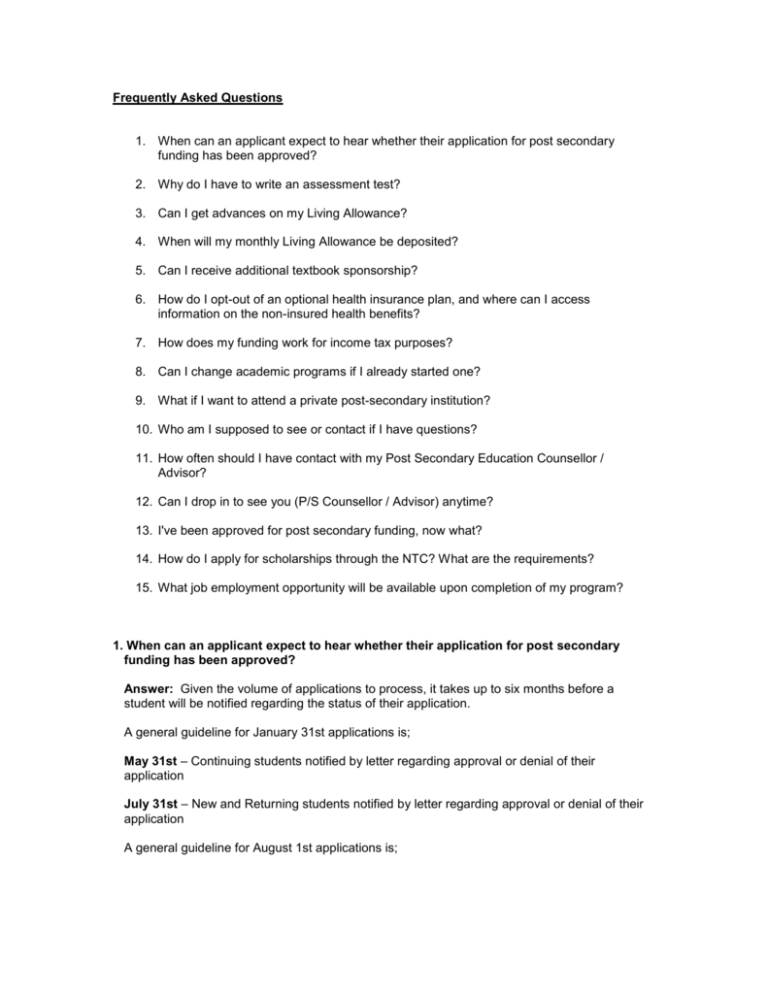
Frequently Asked Questions 1. When can an applicant expect to hear whether their application for post secondary funding has been approved? 2. Why do I have to write an assessment test? 3. Can I get advances on my Living Allowance? 4. When will my monthly Living Allowance be deposited? 5. Can I receive additional textbook sponsorship? 6. How do I opt-out of an optional health insurance plan, and where can I access information on the non-insured health benefits? 7. How does my funding work for income tax purposes? 8. Can I change academic programs if I already started one? 9. What if I want to attend a private post-secondary institution? 10. Who am I supposed to see or contact if I have questions? 11. How often should I have contact with my Post Secondary Education Counsellor / Advisor? 12. Can I drop in to see you (P/S Counsellor / Advisor) anytime? 13. I've been approved for post secondary funding, now what? 14. How do I apply for scholarships through the NTC? What are the requirements? 15. What job employment opportunity will be available upon completion of my program? 1. When can an applicant expect to hear whether their application for post secondary funding has been approved? Answer: Given the volume of applications to process, it takes up to six months before a student will be notified regarding the status of their application. A general guideline for January 31st applications is; May 31st – Continuing students notified by letter regarding approval or denial of their application July 31st – New and Returning students notified by letter regarding approval or denial of their application A general guideline for August 1st applications is; November 1st – New, Continuing and Returning students notified by letter regarding approval or denial of their application 2. Why do I have to write an assessment test? Answer: The NTC P/S Education Department has found that the high school report cards from many schools did not give an accurate picture of student’s skills; therefore it is mandatory that all new students write an English assessment. If a student is interested in taking a program that requires math, they will have to write a Math assessment. NTC P/S funding can only be approved if the student’s assessment results clearly show them at the prerequisite start for their chosen program or beyond. College Prep support from the NTC is limited to eight months of funding at the grade 11/12 level so the assessments also ensure that NTC P/S funding will not run out before College Prep is completed 3. Can I get advances on my living allowance? Answer: No. There are deadlines and procedures in place for receiving cheques. 4. When will my monthly education allowance be deposited? Answer: If you have been approved to receive a monthly living allowance then it is directly deposited to your bank account by the last Thursday of the month (provided there are 2 banking days following). If you have your cheque mailed out to you – you will receive it by the end of the month. Please note that living allowances are issued “one month prior”, e.g. January’s living allowance is issued in December, etc. If you have not submitted any requested documents or provided access to your online student account, your living allowance will be delayed. Staying in regular contact with the P/S Counsellor & Advisor as well as regularly checking the P/S website and Facebook group page is the best ways to avoid this situation. 5. Can I receive additional textbook sponsorship? Answer: Prior to being able to "pick-up" your textbooks, you must submit a complete textbook sponsorship form and return to the P/S Department. Sponsorship for the amount indicated on the form will be setup at your institutions bookstore. Please allow a minimum of three (3) business days for your textbook sponsorship to be setup. If you require textbook sponsorship over the amount indicated on the form, you will be required to submit another textbook cost form showing the additional amount There is no textbook sponsorship for US students. 6. How do I opt-out of an optional health insurance plan, and where can I access information on the non-insured health benefits Answer: Only mandatory tuition and mandatory student fees are covered in approved tuition assistance through NTC. Avoid charges for optional student fees by opting out at the start of the semester. Check with your institution on when fees are applied and the deadlines for opting out. First Nations and Inuit Health Branch works with First Nations and Inuit communities, other Health Canada branches, and federal government departments to provide health programs and services - Non-Insured Health Benefits (NIHB) http://www.hc-sc.gc.ca/fnihb/nihb.htm The Non-Insured Health Benefits Program (NIHB) provides a range of health related goods and services to eligible beneficiaries who are status Indians, recognized Inuit and recognized Innu people in Canada. The NIHB Program offers specific health related benefits not provided by other agencies such as provincial and territorial health plans or other third party plans. These benefits include vision and dental care, medical transportation, drugs, medical supplies and equipment and others. Visit the link above to access more information. 7. How does my funding work for income tax purposes? Answer: According to the CRA (Canadian Revenue Agency) the money you receive from the NTC P/S Department is considered non-taxable when received by a person with status. In light of this information, there is no requirement for the NTC to issue T4A’s out to students. ** The NTC P/S Department does NOT issue T4A’s to students. ** 8. Can I change academic programs if I already started one? Answer: If a student wishes to withdraw from a course that is being funded through the NTC, this must first be discussed with either the P/S Counsellor or Advisor. You must also be aware of deadlines and procedures for withdrawal at the institution you attend. If a student withdraws officially or unofficially without speaking with the P/S Counsellor or Advisor first, the funding received for that semester will need to be repaid prior to any additional funding being considered at a different time. 9. What if I want to attend a private post-secondary institution? Answer: Programs offered at a private institution are eligible for funding under the NTC Post Secondary Program when the following conditions are met: i) A minimum of 75% of the courses have transferability to a publicly funded institution. ii) Tuition will be paid to a maximum of that charged at a publicly funded BC institution. iii) The student is responsible for completing the application to attend a private institution form and obtaining required information in order to have their request to attend a private institution considered for approval. 10. Who am I supposed to see or contact if I have questions? Answer: Contact either the P/S Counsellor or Advisor 11. How often should I have contact with the NTC Post-Secondary Counsellor / Advisor? Answer: All students should have direct contact with a member of the P/S team, a minimum of once per semester. Contact can be made in several ways. i.e., by telephone; in office visits, through e-mail, and on campus visits 12. Can I drop-in at the NTC office to see the P/S Counsellor or Advisor anytime? Answer: The counsellor and advisor are not always available due to their large student case load and travel requirements so an appointment is preferred. This also allows the Counsellor / Advisor an opportunity to review your academic file. 13. I've been approved for post secondary funding, now what? Answer: You will receive a copy of the approved application in the mail along with a copy of the sponsorship letter that is sent to your post secondary institution. It is your responsibility to register with the post secondary institution depending on the college/university. Remember to check with your post secondary institution for specific dates and deadlines. 14. How do I apply for scholarships through the NTC? What are the requirements? Answer: Your application for funding serves as your application for scholarships as well. In order to be considered for a scholarship – you must have maintained a minimum 3.0 GPA in the most recent 8 months of full-time studies. 15. What job employment opportunity will be available upon completion of my program? Answer: You need to have clear and concise goals when choosing a career. Research the labour market for possibilities and projections for future employment. Talk to mentors, employment counsellors and your institution's guidance department for information on how your employment picture will look. Please note; When considering your program and developing your long-term goal, the NTC P/S Department has a Funding Priority System that is used in determining funding. There is a two (2) level priority system based on Program - Area of Study and Performance. Please refer to NTC Post Secondary Policies and Procedures for full list of programs and their level of priority.
